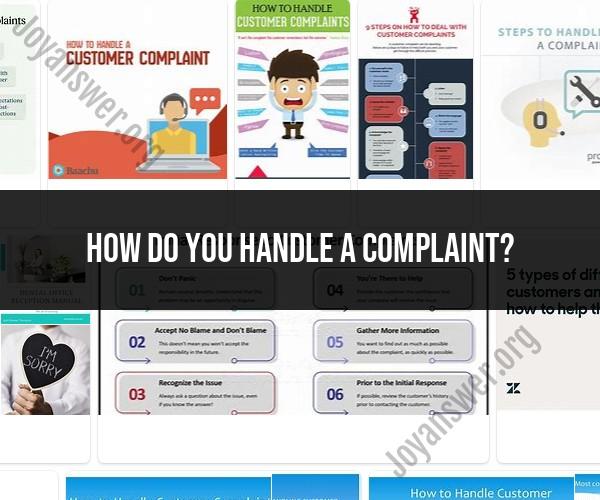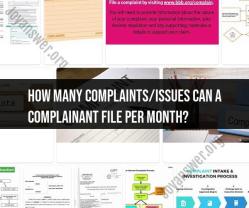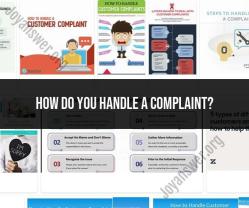How do you handle a complaint?
Handling complaints effectively requires a systematic approach and good communication skills. Here are steps to follow when handling a complaint:
Listen Actively: Start by actively listening to the person who is making the complaint. Allow them to express their concerns without interruption. Sometimes, people just want to be heard.
Stay Calm: Maintain your composure, even if the complaint is emotional or heated. Responding with anger or frustration can escalate the situation.
Acknowledge the Complaint: Let the person know that you've heard their complaint and take it seriously. Use phrases like "I understand your concern" or "I appreciate you bringing this to our attention."
Ask Clarifying Questions: To fully understand the issue, ask open-ended questions to gather more information. This shows that you care about resolving the problem.
Empathize: Show empathy by acknowledging the person's feelings. Say something like "I can understand why you're upset" or "I'm sorry you had this experience."
Apologize (if appropriate): If the complaint is valid, offer a sincere apology. Taking responsibility for any mistakes or shortcomings can go a long way in resolving the issue.
Investigate the Issue: Once you have all the details, start investigating the problem. This may involve checking records, talking to employees, or reviewing policies.
Offer Solutions: Based on your investigation, propose a solution to the complainant. Be clear about what you can do to resolve the issue. If the complaint is about a product or service, offer a replacement or a refund, if appropriate.
Follow Up: After the complaint has been resolved, follow up with the complainant to ensure they are satisfied with the solution. This shows that you value their feedback.
Document Everything: Keep detailed records of the complaint, your investigation, and the resolution. This documentation can be useful if the issue arises again or if you need to track trends in complaints.
Learn and Improve: Use complaints as an opportunity to learn and improve. Analyze trends in complaints to identify areas that may need changes in processes or policies.
Train Your Team: Ensure that your employees are trained in complaint handling procedures. They should know how to handle complaints professionally and empathetically.
Seek Legal Advice (if necessary): In some cases, especially in certain industries like healthcare or legal, it may be necessary to seek legal advice on how to handle complaints to ensure compliance with regulations.
Remember that effectively handling complaints can lead to improved customer satisfaction and loyalty. It's also an opportunity to address issues and make positive changes in your organization.







